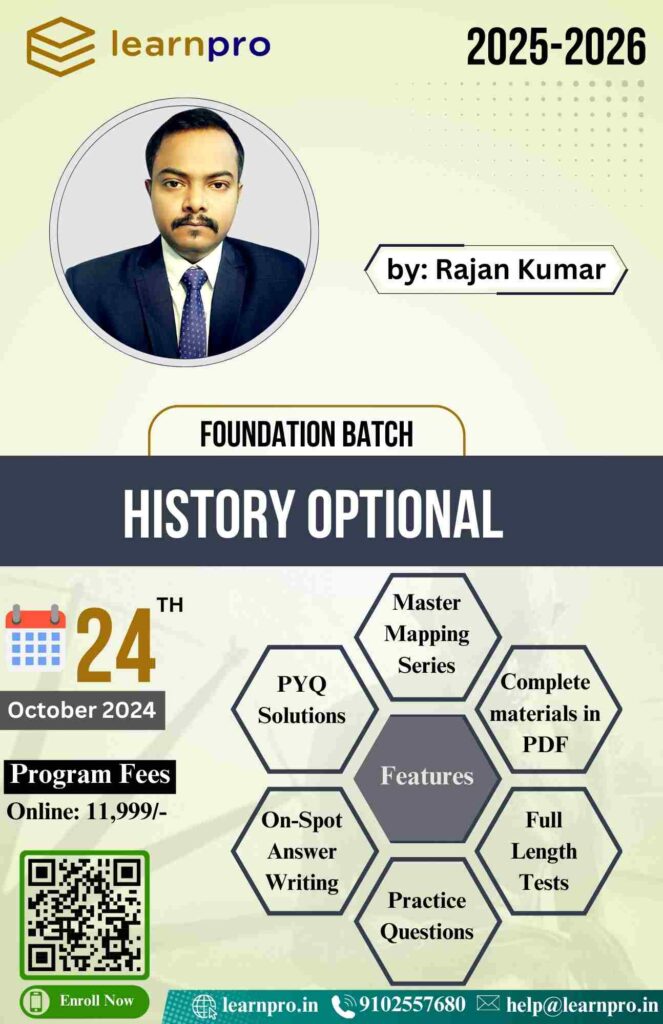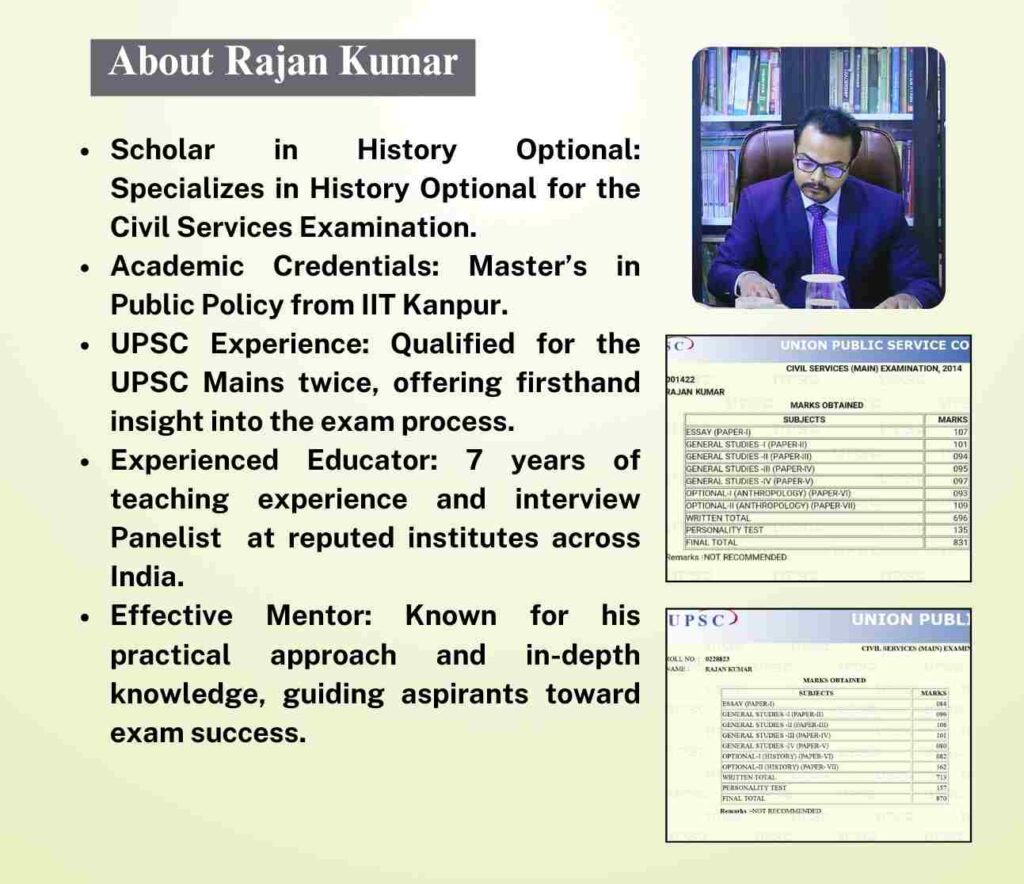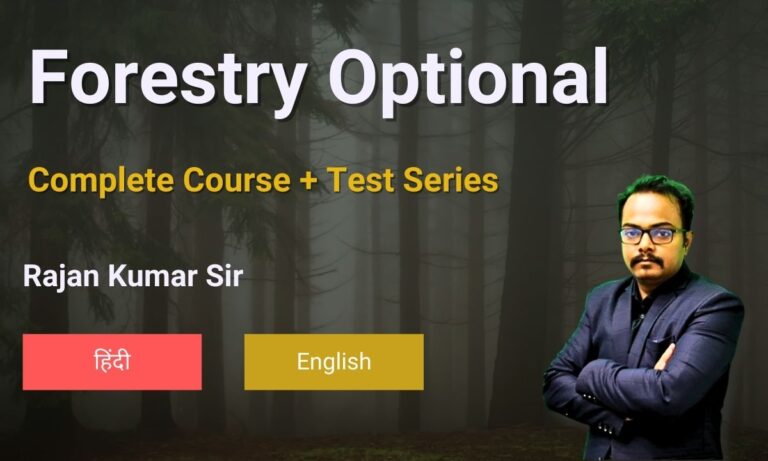January 25, 2026 4:32 am
Are you aiming to master the History Optional for the UPSC Civil Services Examination? Our History Optional Foundation Course is designed specifically to provide comprehensive and strategic coverage of the History syllabus, including both Paper 1 and Paper 2, with a detailed focus on Ancient, Medieval, and Modern Indian History, as well as World History.

Key Features of the History Optional Foundation Course:
- Complete Syllabus Coverage
The course ensures a thorough exploration of every topic in both Paper 1 and Paper 2. From Ancient India’s rich civilizations to the complexities of Modern Indian history and significant events in World History, you’ll gain in-depth knowledge that prepares you to tackle any question with confidence. - Innovative Teaching Tools
Our teaching approach includes a blend of templates, mind maps, and mnemonics designed to boost analytical skills and enhance long-term retention. These tools simplify complex topics, making it easier to understand and remember key concepts. - Intensive 4.5-Month Foundation Program
Spanning 4.5 months, this structured, in-depth program covers the entire syllabus, providing a solid foundation with expertly curated study materials and targeted learning sessions. - Trend Analysis for Strategic Preparation
By analyzing past question trends, the course highlights frequently tested areas and potential future questions. This allows you to focus on high-yield topics while preparing for possible new areas, maximizing your efficiency and boosting exam performance. - Regular Assessments with Sectional and Full-Length Tests
Your progress is tracked with a balanced testing approach, featuring 4 sectional tests and 4 full-length mock tests. Each test reinforces your understanding and highlights areas for improvement, providing personalized feedback to fine-tune your preparation. - In-Depth Mapping, Art & Culture Modules
This course includes specialized modules on mapping, art, and culture, covering key sites from Ancient and Medieval India. You’ll receive 12 mapping classes and 4 mapping tests to strengthen your knowledge of significant historical locations, essential for History Optional and GS Paper 1. - Master Mapping Series
Over 4 weeks, this series dives into critical sites of Ancient and Medieval India. With crisp, focused information, these classes provide essential insights needed for the exam. Weekly tests help reinforce learning and evaluate your understanding of mapped locations. - Personalized Answer Writing Practice
Gain personalized feedback with guided answer-writing sessions led by successful candidates and top mentors. These sessions focus on refining your answers with data, diagrams, and strategic presentation techniques, enhancing both content quality and clarity.

About the Faculty: Rajan Kumar
- Expertise: Rajan Kumar, an experienced History Optional educator, brings 7 years of teaching experience and firsthand insights as a UPSC Mains qualifier. With a Master’s in Public Policy from IIT Kanpur, he is well-equipped to guide students through the nuances of History for UPSC.

- Effective Mentorship: Known for his practical approach and in-depth knowledge, Rajan Kumar’s guidance has helped numerous students achieve success in the Civil Services Examination.
Enroll Now!
Take the next step in your UPSC journey with our History Optional Foundation Course. With a fee of just INR 11,999 for the online program, this course offers exceptional value with a comprehensive curriculum, expert mentorship, and strategic resources.
Detailed Trend Analysis for Paper 1 and Paper 2
This trend-based analysis identifies key areas of the syllabus where questions have frequently appeared over the years. It also highlights potential topics that could be important in future exams but are often neglected.
This way, you’re not just working harder—you’re working smarter.
Paper 1:
| Topic | Subtopic | Years |
|---|---|---|
| Sources | Archaeological, Numismatic, Epigraphy, Literary sources, etc. | 2013, 2017, 2022 |
| Indus Valley Civilization | Features, Decline theories, Art and Architecture, etc. | 2012, 2013, 2022 |
| Aryan and Vedic Period | Differences between Rig Vedic and Later Vedic society | 2015, 2019 |
| Mauryan Empire | Administration, Ashoka’s Dhamma | 2014, 2017, 2022 |
| Post-Mauryan Period | Kushanas, Satvahanas, Trade and Commerce | 2016, 2019, 2022 |
| Guptas, Vakatakas, and Vardhanas | Administration, Economy, Art and Architecture | 2014, 2018, 2022 |
| Early Medieval India, 750-1200 | Administration, Bhakti and Sufi Movements | 2012, 2014, 2022 |
Paper 2:
| Topic | Subtopic | Years |
|---|---|---|
| British Expansion in India | Anglo-Mysore Wars, Anglo-Maratha Wars, Anglo-Sikh Wars | 2017, 2021, 2022 |
| Economic Impact of Colonial Rule | Permanent Settlement, Ryotwari Settlement, Deindustrialization | 2013, 2015, 2021 |
| Indian National Movement | Khilafat Movement, Civil Disobedience, Quit India Movement | 2014, 2020, 2021 |
| World Wars | Causes and Consequences, Paris Peace Treaties | 2011, 2016, 2021 |
| Imperialism and Colonialism | American Overseas Expansion, Indonesia’s Colonial Struggle | 2010, 2011, 2022 |
| Cold War and Decolonization | Emergence of Power Blocs, UN and Global Disputes | 2014, 2015, 2019 |
| Disintegration of Soviet Union | Collapse, Rise of the US as Superpower | 2012, 2016, 2022 |




